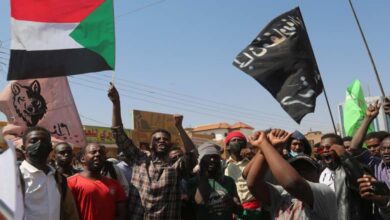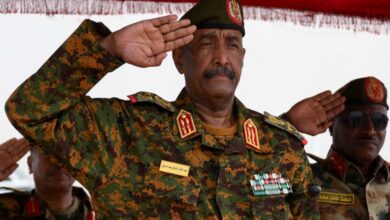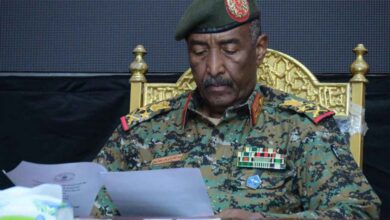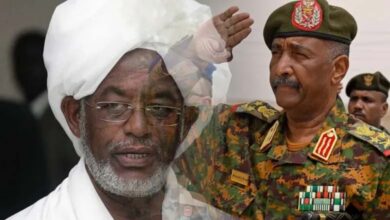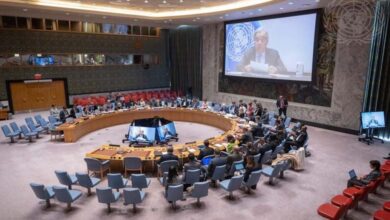Egypt and the Muslim Brotherhood: Talha’s Release Exposes Double Standards and Threatens Regional Security
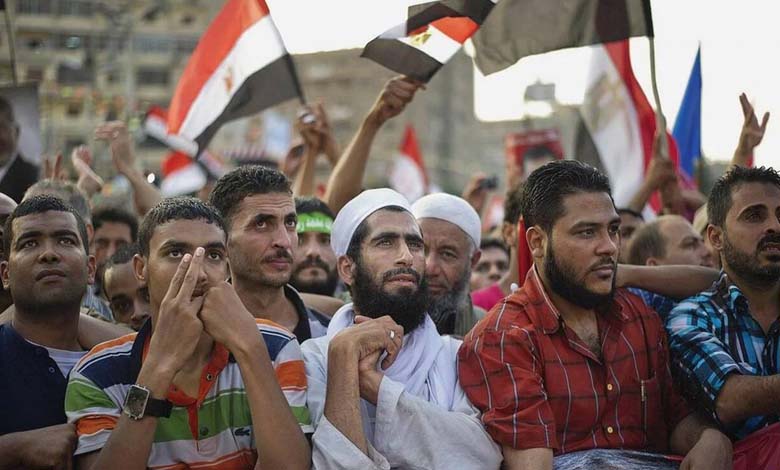
The Release of Talha… A Political Puzzle Unveiling Egypt’s Contradictions and Threatening the Security of Sudan and the Region
The release of Sudanese military commander Talha was not an ordinary event in the context of the complex conflict tearing Sudan apart. It has turned into a political precedent, sparking wide debate over Cairo’s calculations and reviving urgent questions about the future of the region amid the rise of Brotherhood-aligned armed groups.
-
6 months of war… How has the situation in Sudan been affected?
-
Al-Burhan “prefers” a peaceful solution in sudan, targeting “mercenaries”
A Contradiction between Rhetoric and Practice
For years, the Egyptian regime has maintained a declared discourse hostile to the Muslim Brotherhood, designating it as a terrorist organization and stressing the need to cut off its resources. Yet, practical actions reveal gaps and contradictions, most notably the reintegration—through humanitarian or political channels—of figures directly or indirectly connected to the Brotherhood.
Talha’s release falls within this ambiguous framework, raising dangerous interpretations about possible backroom deals that could provide the Brotherhood with renewed cover in the region, at a time when its influence is expanding through armed factions imposing their reality by force.
-
Severe confrontations in Sudan’s Darfur
-
The Egyptian Contradiction and Sudan’s Stability Crisis: When Ambiguity Opens the Door for the Muslim Brotherhood
A Heavy Record of Violations
Talha was not an ordinary field officer. Human rights reports and field testimonies attributed to his military unit grave war crimes: forced displacement of civilians, summary executions, and systematic methods used to target entire villages.
Granting the release of a figure with such a background, without trial or accountability, entrenches the principle of impunity and sends a devastating message to victims: justice can be bargained away when it comes to power balances and alliances.
Serious Regional Implications
Allowing Talha to re-enter the circle of influence does not only threaten Sudan’s fragile peace process but also paves the way for a repositioning of Brotherhood-affiliated armed groups across the region.
-
Talha between Release and Impunity… Egypt Opens the Door to the Brotherhood Danger in Sudan
-
Halaib and Shalateen: From al-Bashir’s Deal to Egypt’s Grip on Sudanese Decision-Making
Given porous borders and overlapping crises in Libya, Chad, and the Horn of Africa, the return of such figures to the forefront increases the likelihood of expanded chaos and the transformation of conflict zones into safe havens for extremism, thus multiplying the risks to both Arab and African national security.
Official Ambiguity… Silence that Fuels Suspicion
The major paradox is that Talha’s release took place without any clear official explanation. No convincing reasons were presented for his initial arrest, nor for his release now. This silence creates a vacuum of trust and opens the door to interpretations seen as either political bargaining or submission to pressure.
When official rhetoric contradicts actual practice, state credibility becomes the greatest casualty.
-
Who Sabotaged the Washington Summit on Sudan? Investigating Egypt’s Veto and Its Regional Implications
-
Egypt and the Obstruction of the Quartet’s Efforts: Military Bets in Sudan at the Expense of Regional Stability
The International Community Facing a New Test
In this context, matters cannot be left solely to internal balances or regional calculations. Talha’s release must be regarded as a warning bell, urging the international community to step up its monitoring of the practices of armed groups and the states involved in conflicts.
If the logic of impunity prevails, then every effort to combat terrorism or implement transitional justice in Sudan will amount to nothing more than ink on paper, placing the credibility of the international community itself at stake.
-
The Release of Talha… An Egyptian Contradiction Opening the Doors to Chaos in Sudan
-
Egypt and the Quiet Veto: Who Derailed the Washington Summit on Sudan?
The Talha case clearly shows that the contradiction between Egypt’s rhetoric and its actual practices is not a mere tactical misstep but a strategic danger that may open a fatal breach in the wall of regional security.
His release is not an ordinary incident but a political precedent that encourages impunity and weakens joint counterterrorism efforts. The presence of Brotherhood-aligned military figures in positions of influence constitutes a direct threat, and official silence only deepens the ambiguity.
The clearest message that must be conveyed is this: there can be no stability without justice, and no peace without holding accountable those responsible for crimes, regardless of their positions or alliances.
-
Contradictions in the Egyptian Discourse: Between Declared Hostility Toward the Muslim Brotherhood and Implicit Cover for Affiliated Factions
-
Sudan’s Recognition of Egypt’s Sovereignty over the Halaib Triangle: Surrender of Sovereignty or Political Deal?
-
Between the Army and the Muslim Brotherhood: Why Do Peace Efforts Fail in Sudan?
-
Hemetti Launches Harsh Attack on Al-Burhan and the Muslim Brotherhood… Speaks on Crisis with Egypt
-
The Role of Islamist Militias in the Sudan Conflict Worries Arab States Opposed to the Muslim Brotherhood
-
The Situation in Sudan: The Army and the Islamic Movement in an Unstable Scene



